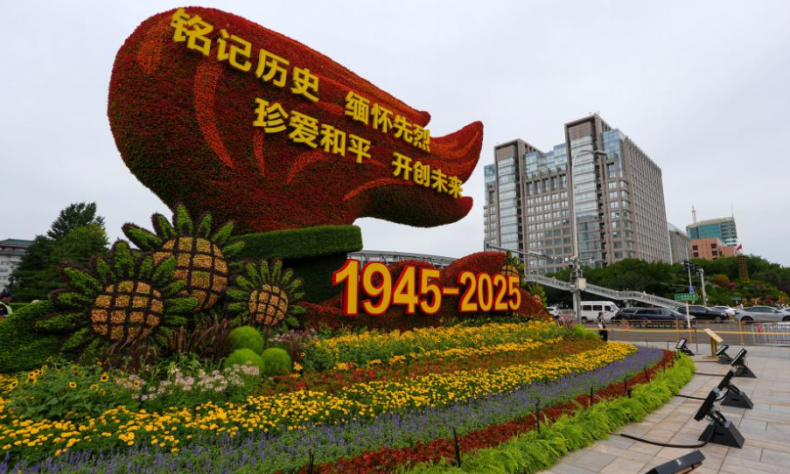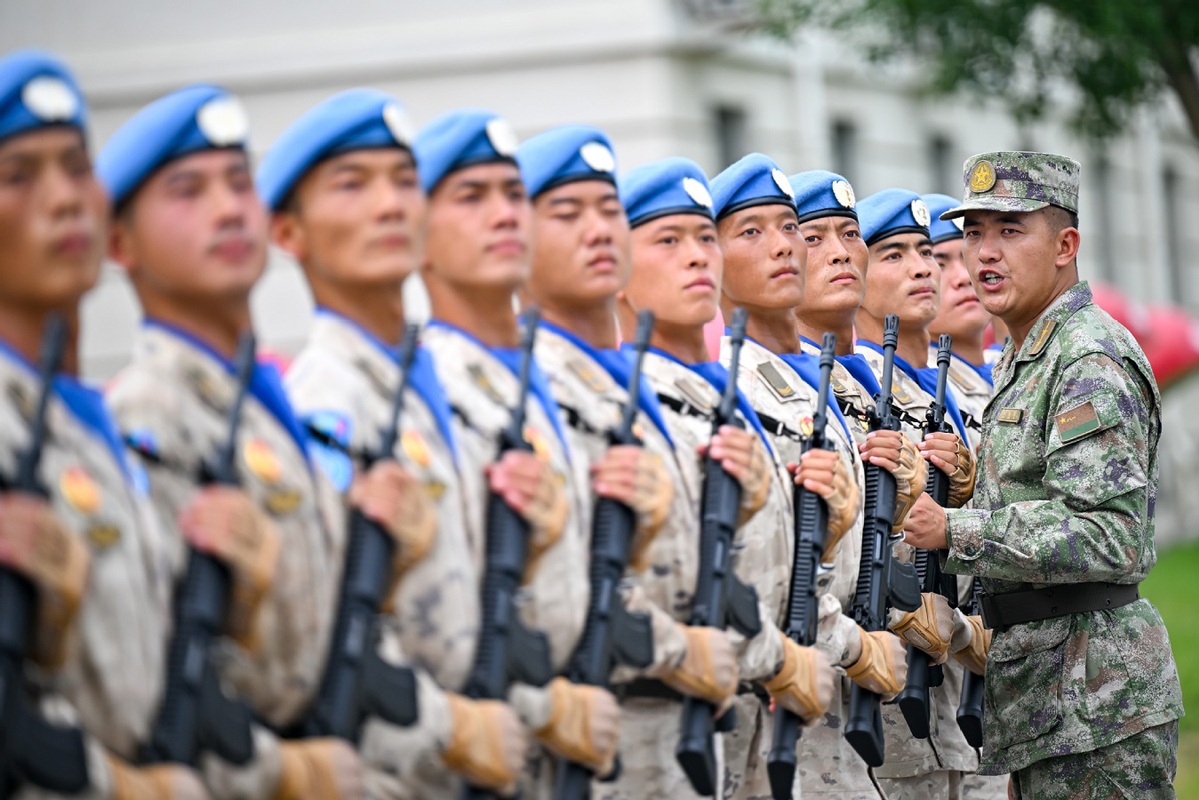While Trump Claims Peace, China Builds It

Beijing champions a philosophy deeply rooted in its own civilizational ethos: The wise win without battle; peace is preserved by avoiding the need to fight, not by fighting.
As Beijing prepares to hold a military parade early next month to mark the 80th anniversary of the victory of the Chinese People’s War of Resistance Against Japanese Aggression and the World Anti-Fascist War, U.S. President Donald Trump continues to portray himself as a “peacemaker.” To his supporters, he is seen as someone who has already “stopped” or “prevented” several wars, though it is debatable whether some of these alleged conflicts were ever truly imminent.
Although The New Yorker magazine recently labeled Trump “a master builder of castles in the air,” he is often viewed as a media genius and a master of political communications. During a recent Washington summit with Armenian Prime Minister Nikol Pashinyan and Azerbaijani President Ilham Aliyev, Trump claimed that he “prevented the war between Serbia and Kosovo.”
According to the U.S. president, Washington “had to stop something that was about to start,” despite the lack of any clear signs that renewed conflict in the Balkans was looming. Previously, in July, U.S. Secretary of State Marco Rubio said that Trump “stopped the war between India and Pakistan by telling the two neighbors that Washington will not do trade with them if they continued the fighting.”
On Aug. 8, while hosting Pashinyan and Aliyev, Trump acted as if he had just brought an end to the conflict between Armenia and Azerbaijan, even though it had effectively concluded back in 2020. Such an approach allows him to position himself as a “peace-loving” leader, despite his involvement in the bombing of Iran.
China is not using such a PR stunt to claim global “peacekeeping victories.” Instead, Beijing champions a philosophy deeply rooted in its own civilizational ethos: The wise win without battle; peace is preserved by avoiding the need to fight, not by fighting.
In other words, Beijing draws strength from institutions, economic ties and cultural connections rather than public theatricality. While Trump often approaches diplomacy with a focus on personal dominance and spectacle, China tends to favor a more restrained, strategic projection of its soft power.
As Beijing prepares to hold the military parade, the event appears aimed not only at demonstrating the People’s Liberation Army’s military capability but also at reinforcing the message that China is a pillar in maintaining world peace and will remain a staunch force for peace, stability and progress of the world. World leaders who will attend are also likely to observe China’s focus on unity and diplomatic cooperation.

For China, World War II — particularly the war of resistance against Japanese aggression, fought between 1931 and 1945 and resulting in tens of millions of Chinese casualties — is a pivotal moment in the country’s modern history. It is remembered as a key contribution to the global fight against fascism and a source of national identity. Despite lingering historical grievances and ongoing territorial disputes, China has made consistent efforts to normalize and improve relations with Japan.
Crucially, China’s post-WWII military record stands in stark contrast to that of many other major countries. Its military engagements have primarily been defensive or related to its national reunification and border disputes, rather than large-scale wars of conquest or foreign occupation.
“I can feel how China is playing an intensive part in efforts to resolve international conflicts,” former German Chancellor Angela Merkel stressed in 2015, emphasizing Beijing’s attempts to mediate various global crises and conflicts — from Syria, through North Korea’s nuclear program, to Afghanistan.
In recent years, Beijing has continued to present itself as a neutral mediator in several conflicts and disputes. It played a notable role in facilitating the Iran-Saudi Arabia reconciliation in 2023, an uncommon diplomatic development in the Middle East. It has also proposed peace initiatives regarding the conflicts in Ukraine and Gaza. While some of these efforts have yet to produce definitive outcomes, they contribute to China’s reputation as a global actor focused on stability rather than spectacle.
The Chinese leadership has also repeatedly voiced support for the peace process between Armenia and Azerbaijan, welcoming signs of progress. Yet, unlike Washington and Brussels, Beijing did not host Prime Minister Pashinyan and President Aliyev for high-profile summits. It will, however, host several world leaders not only at the Sept. 3 parade in Beijing, but also a few days earlier in Tianjin, where the Shanghai Cooperation Organization (SCO) summit is scheduled to take place.
These events could hardly be overshadowed by Trump’s ambition to freeze the Ukraine conflict, though he used his summit with Russian President Vladimir Putin in Alaska and follow-up meetings to portray himself as a “peacemaker.” Late August and early September are likely to be a period when the world will pay much of its attention to Beijing when China reaffirms its historical commitment to peace, stability, development and cooperation.
“History has told us to preserve peace with great care, as peace, like air and sunshine, is hardly noticed when people are benefiting from it, but none of us can live without it,” Chinese President Xi Jinping said.
Actions speak louder than words. The world will eventually know who is earnestly working for peace and development, and who is doing the high talk of peacemaking and the like.
Nikola Mikovic is a Serbia-based freelance journalist and political analyst.
 Facebook
Facebook
 Twitter
Twitter
 Linkedin
Linkedin
 Google +
Google +










